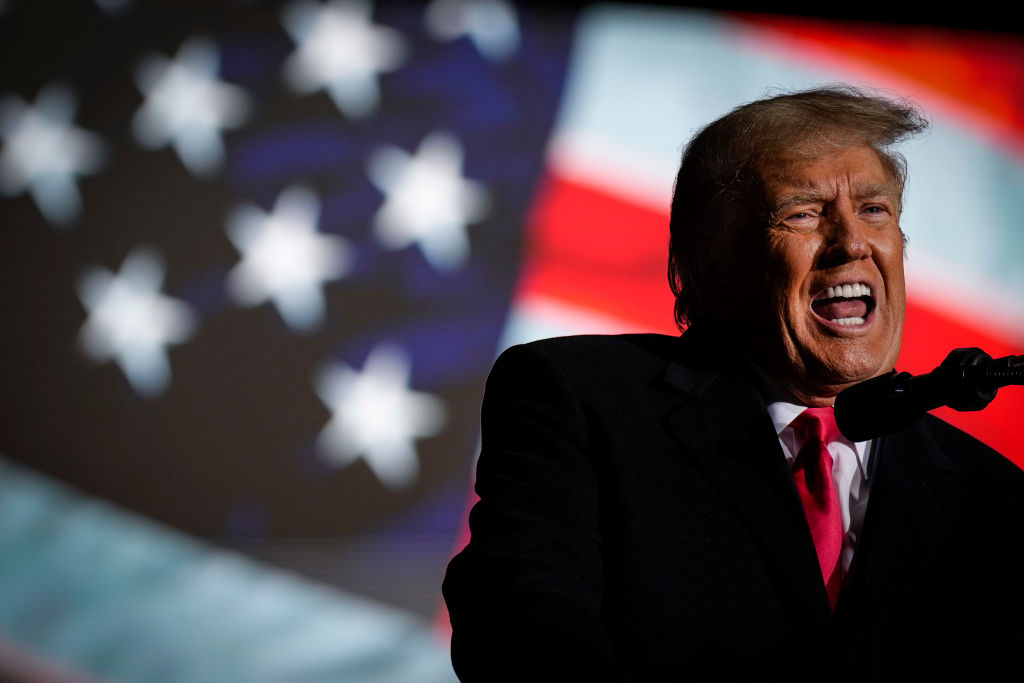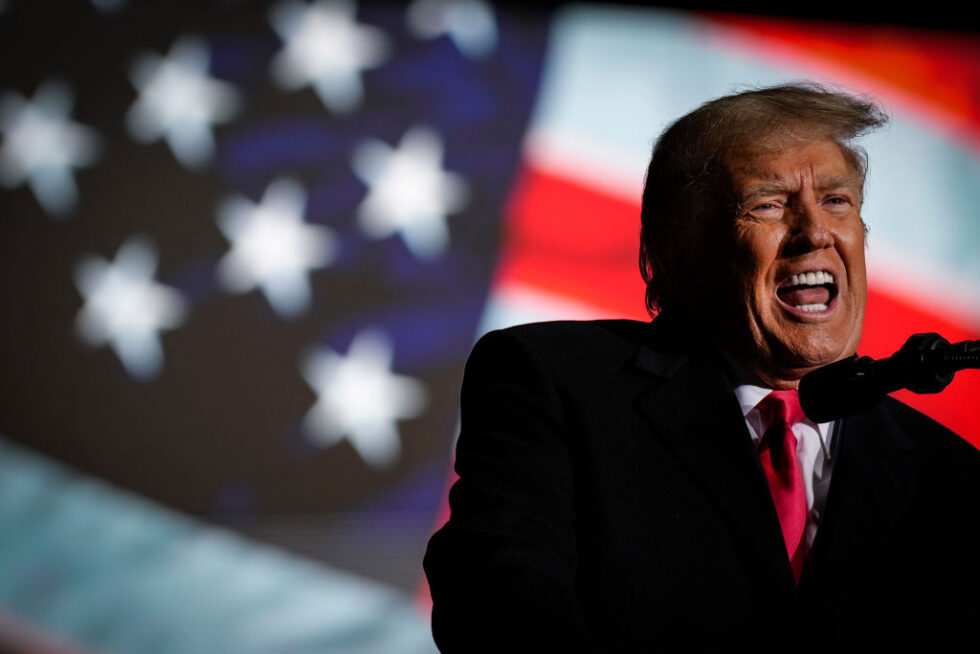
Prime Minister Anthony Albanese will soon head to Washington DC for his first bilateral visit. He’ll arrive into a feverish political climate ahead of next year’s presidential election. As that approaches, Australia and other democracies that consider themselves friends to the United States must forgo the timid approach of refusing to comment on other countries’ political campaigns.
While the reticence is well founded and based on principles of sovereignty and avoiding foreign interference, it is not in Australia’s interests to persist with an inflexible view that US elections are a matter only for Americans.
Decisions made in Washington affect the rest of the world, both adversaries and allies. As a close and trusted ally, Australia is entitled to views on policies that affect us. To be clear, we should not look to influence the election outcome or tell Americans for whom they should vote. Rather, we should express frank views on policy ideas—whether on security, trade or the environment—that are contrary to our interests and to principles that underpin an open and stable world, even if that’s read as tacit criticism of particular candidates.
It might carry some diplomatic risk, but that is dwarfed by the prospect of dangerous foreign policy decisions being made in Washington. As John F. Kennedy said, ‘There are risks and costs to action. But they are far less than the long-range risks of comfortable inaction.’
What messages need to be delivered? Above all, do not give up American sovereignty and liberty—as some candidates risk doing by taking positions effectively drafted in Moscow and Beijing. Importantly, do not give your enemies and rivals what they want. Do not give up Ukraine and do not cripple NATO—there’s a reason that Russia hasn’t invaded a single NATO country. And definitely do not give up Taiwan against the will of the Taiwanese to the authoritarian will of Beijing and, as Germany’s Foreign Minister Annalena Baerbock has simply but accurately said, the ‘Dictator’ Xi Jinping.
American independence doesn’t mean isolation. The US must maintain its international leadership among open and democratic nations and use its unrivalled power to support the international rules-based order. Deputy Prime Minister and Defence Minister Richard Marles was right when he told ASPI’s conference last month that we should all encourage the US to continue upholding the rules whose establishment it led after the horrors of World War II.
We also need to be willing to change our approach when the times change. Information and therefore debates are global. We are in a period of renewed strategic competition in which critical technologies—including in the information domain—are central.
It makes no sense for America’s friends to stay out of the debate when its adversaries are so heavily involved.
We learned with shock in 2016 that it wasn’t only American voices participating in American politics. Russia had been up to its elbows trying covertly to influence the outcome of that year’s election and undermine trust in democracy. America’s friends cannot be silent onlookers while its adversaries meddle. We will always distinguish ourselves by being open and transparent about our involvement—contrasted with Moscow’s and Beijing’s covert interference—but we cannot be absent.
Silence and inaction from the US’s friends would only allow rivals such as Moscow, Beijing, Tehran and Pyongyang to have the playing field to themselves. We would not be a good friend to Americans or serve our own national interest if we merely exclaimed our disbelief and disappointment after US election campaigns.
Therefore, we should remind Washington that it has historically been clear-eyed about the threat of foreign interference. As one of America’s founders, Alexander Hamilton, wrote so aptly in 1788 in Federalist paper 68, the ‘most deadly adversaries of republican government’ come ‘chiefly from the desire in foreign powers to gain an improper ascendant in our counsels’.
It is ironic that some Republican candidates—from a party with ideological roots in liberty and limited government—fulminate against excessive US government power and influence, only to adopt the extreme and false views of foreign governments, especially Russia’s. Hence vaccine mandates equal tyranny, and NATO provoked Moscow into its illegal war against Ukraine. That is not free will or freedom from government control—it’s being beholden to the will of foreign adversaries.
As Abraham Lincoln said, ‘We all declare for liberty; but in using the same word we do not all mean the same thing.’
It should be telling that Moscow and Beijing want Donald Trump or one of his political descendants such as Vivek Ramaswamy in power. Yes, the Trump administration put in place some strong policies constraining Beijing’s malicious behaviour, but it wasn’t led by Trump himself. It was the tenacity of the officers around him, like National Security Adviser H.R. McMaster and his deputies, Nadia Schadlow and Matt Pottinger, Defence Secretary Jim Mattis and the chairman of the Joint Chiefs of Staff, Mark Milley. Beijing, and Moscow, want Trump without such responsible officials. And most likely that is what they would get: Trump turned savagely on most of these patriots for what he saw as their disloyalty to him.
Authoritarians recognise the benefits of a president who would abandon principle and adopt their transactional approach to foreign policy. As much as Trump fancies himself a dealmaker, international politics is different from business, and historically the Chinese Communist Party has dealt better than most. Beijing thinks Trump might be willing to give up America’s support for the status quo in Taiwan for a trade deal.
But principle matters in foreign and defence policy, which is why the objective should always be the long-term security of the nation as opposed to short-term economic prosperity. As Thomas Jefferson counselled: ‘In matters of style, swim with the current. In matters of principle, stand like a rock.’
It isn’t just Trump and the Republicans. Robert F. Kennedy Jr, a Democrat turned independent challenger to President Joe Biden, is getting almost all of his campaign policies straight out of Moscow’s playbook, claiming that the CIA killed his uncle, that 5G technology and vaccines are bad for you, and that Russia has legitimate security interests in invading Ukraine.
The concerns of allies and friends ought to have some bearing on American thinking. In Australia’s case, we have fought alongside the US in every major conflict for more than a century. We have not only the right but the obligation to speak up when our greatest ally and strategic partner falters. The same goes for the other Five Eyes nations and NATO. Just as the US is entitled to demand that NATO partners invest more responsibly in defence, those partners have the responsibility to speak truthfully to Washington.
A stronger stance also answers those critics who demand a more ‘independent’ Australian foreign policy (usually code for exiting America’s orbit). They are actually raising the wrong objection. No country in the modern world can go it alone, even superpowers, which is why China and Russia have signed their ‘no limits’ partnership. The answer is to involve ourselves more in the political debates that set US direction globally and help shape international outcomes.
Again, we should be open and overt. Our job is not to stop Trump getting elected but to ensure that, if he or one of his political successors does end up in the Oval Office, we have sent a clear signal to the US that its friends internationally—on which even a country as large and powerful as the US relies—will push back when policies and decisions destabilise the world and empower authoritarians.
The US has proudly been the land of the free and the home of the brave. Long may that be true.
Author: Justin Bassi is the executive director of ASPI


